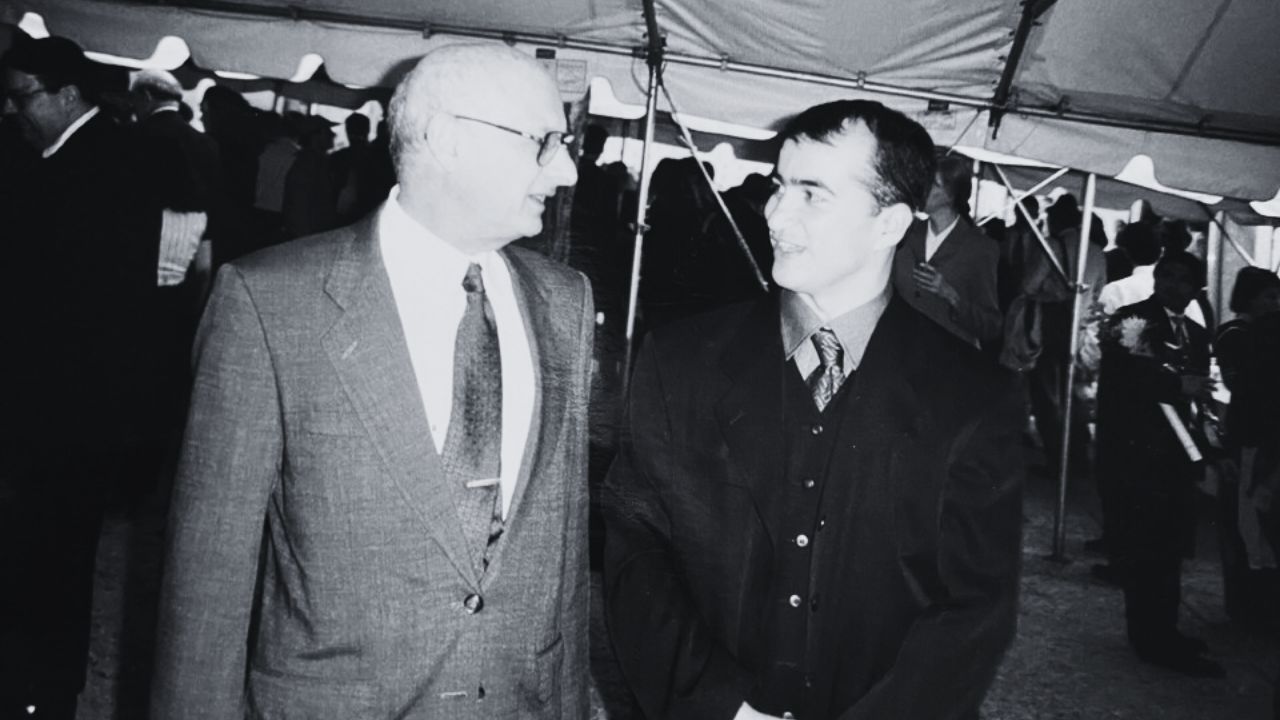Meet Max Corden, an exceptional figure in the world of economics. He was a trailblazer, responsible for shaping many of the fundamental concepts in international economics and trade policy. Born in Germany and raised in Australia, his journey was marked by extraordinary achievements that continue to inspire economists around the globe.
Early Life and Education
Max Corden was born as Werner Max Cohen in 1927 in Breslau, Germany. The Nazi regime posed a severe threat to his Jewish family, prompting them to migrate to Melbourne, Australia, in 1939. Changing their surname to Corden, they started a new life, far from the horrors of their homeland.
Young Corden was a bright student, attending Melbourne High School and later the University of Melbourne. He graduated with a Bachelor of Commerce (Honours) and a Master of Commerce, paving the way for a promising future. Eager to further his knowledge, he moved to the United Kingdom, earning his PhD in economics from the prestigious London School of Economics in 1956.
Academic and Professional Career
Corden’s remarkable career was marked by prestigious positions and significant contributions to the field of economics. His journey began at the University of Oxford, where he held the title of Nuffield Reader in International Economics from 1967 to 1976. His role at Oxford extended beyond teaching; he was a mentor, inspiring a generation of budding economists.
In 1977, Corden returned to Australia, serving as Professor of Economics at the Australian National University (ANU) until 1988. His expertise was recognized internationally, leading to his work at the International Monetary Fund (IMF) from 1986 to 1988. Later, his journey took him to the School of Advanced International Studies (SAIS), Johns Hopkins University, where he was the Chung Ju Yung Distinguished Professor of International Economics until his retirement in 2002.
Even after retirement, his dedication to economics didn’t wane. He served as an emeritus professor at SAIS and a professorial fellow at the University of Melbourne, continuing to share his knowledge and inspire future economists.
Key Contributions to Economics
Max Corden’s work has left an indelible mark on the field of economics. One of his most significant contributions is the development of the theory of “”effective protection,”” which he detailed in his book ‘The Theory of Protection’ in 1971. This theory has become a cornerstone of international economics, improving our understanding of trade barriers and their impact on economies.

Working with Peter Neary, Corden developed the groundbreaking model of “”Dutch disease.”” This model explores how a positive shock in a sector producing international tradable goods can indirectly harm the overall economy, a concept that has greatly influenced economic policy.
His work in international trade and policy is extensive. He examined trade policy, exchange rate protection, and macroeconomic policy, contributing to a more profound understanding of these areas. His notable publications, including ‘Trade Policy and Economic Welfare’ (1974) and ‘Economic Policy, Exchange Rates, and the International System’ (1994), continue to be essential reading for students and practitioners in the field.
Beyond trade and policy, Corden also made significant contributions to macroeconomic dimensions. His work on international monetary systems, inflation, and exchange rates has shaped our understanding of these critical areas. His book ‘Inflation, Exchange Rates, and the World Economy’ (1981) remains a pivotal resource for those interested in macroeconomics.
Theory of Protection
The world of economics owes a great deal to Max Corden’s analysis of trade barriers, a concept that he termed as the “”Theory of Protection.”” The inception of this theory was a turning point in international economics, shedding light on the intricate dynamics of trade protectionism.
In his seminal book, ‘The Theory of Protection’ (1971), Corden astutely proposed that trade barriers, such as tariffs and quotas, can dramatically alter the landscape of an economy. His groundbreaking theory suggested that these protectionist measures could lead to a shift in resources, which could, in turn, affect the overall economic landscape.
His work in this area has provided economists with a critical tool to assess and understand the direct and indirect impacts of trade barriers. Over the years, his theory has been instrumental in shaping trade policies around the globe, guiding economies towards a path of sustainable growth.
Dutch Disease Model
Max Corden’s intellectual curiosity led him to co-develop the model of “”Dutch Disease”” with Peter Neary. This model was a game-changer, introducing a new perspective on how economic prosperity could potentially lead to economic distress.
The “”Dutch Disease”” model explores the economic phenomenon where an increase in revenues from natural resources could lead to a decline in the manufacturing sector. The model was named after the economic crisis that hit the Netherlands in the 1960s following a large-scale discovery of natural gas.
Corden’s model has been indispensable in understanding the indirect repercussions of a boom in a particular sector. His analysis has influenced economic policies worldwide, helping nations anticipate and mitigate the adverse effects of the “”Dutch Disease.””
International Trade and Policy
Max Corden’s expertise extended well beyond conventional economic theories. His work in international trade and policy is profound, providing a deep understanding of trade dynamics and their implications on macroeconomic policies.
He carefully examined the interplay between trade policy, exchange rate protection, and macroeconomic policy. His findings have been instrumental in defining trade strategies, shaping exchange rate policies, and understanding the broader implications of these on the global economy.
His notable publications, such as ‘Trade Policy and Economic Welfare’ (1974) and ‘Economic Policy, Exchange Rates, and the International System’ (1994), remain key resources for students and practitioners in economics. These works have not only enhanced our understanding of international trade and policy but have also inspired further research in these areas.
Honors and Awards
Max Corden’s extraordinary contributions to economics were recognized widely. In 2001, he was bestowed with the Companion of the Order of Australia (AC), one of the country’s highest honors. This award is a testament to the impact of his work and his dedication to the field of economics.
His influence extended beyond Australia, reaching the global economics community. The American Economic Association, one of the most prestigious organizations in economics, honored him as an Honorary Foreign Member, recognizing his significant contributions to the field.
Corden’s expertise and body of work were also acknowledged by the Academy of the Social Sciences in Australia and the British Academy, both of which he was a fellow. From 1977 to 1980, he served as the President of the Economic Society of Australia, further cementing his legacy in the field.
Legacy and Impact
Max Corden’s impact on economics is both profound and enduring. His theories, particularly the Theory of Protection and the Dutch Disease Model, have become fundamental concepts in international economics. His insightful analyses of trade policy, exchange rate protection, and macroeconomic policy have continually served as valuable resources for students and scholars alike.
His legacy is not just confined to his writings. As an educator, he influenced a generation of budding economists, both at Oxford and Johns Hopkins University. His teachings continue to shape the minds of future economists, underlining the lasting impact of his work.
In recognition of his enormous contributions, the Australian National University named the Arndt-Corden Department of Economics in his honor. Additionally, the University of Melbourne established the annual Corden Lecture, further perpetuating his influence on the field of economics.
Conclusion
Max Corden’s journey, marked by significant achievements, research, and teaching, leaves an indelible mark in the field of economics. His theories, writings, and teachings continue to enlighten economists around the world. His vision and insights have shaped economic policies globally, guiding nations towards a path of economic prosperity.
His legacy is a testament to his exceptional talent, hard work, and dedication. Max Corden continues to inspire, and his contributions will continue to influence the field of economics for generations to come. His life and work stand as a beacon for all those who aspire to make a difference in the field of economics.
